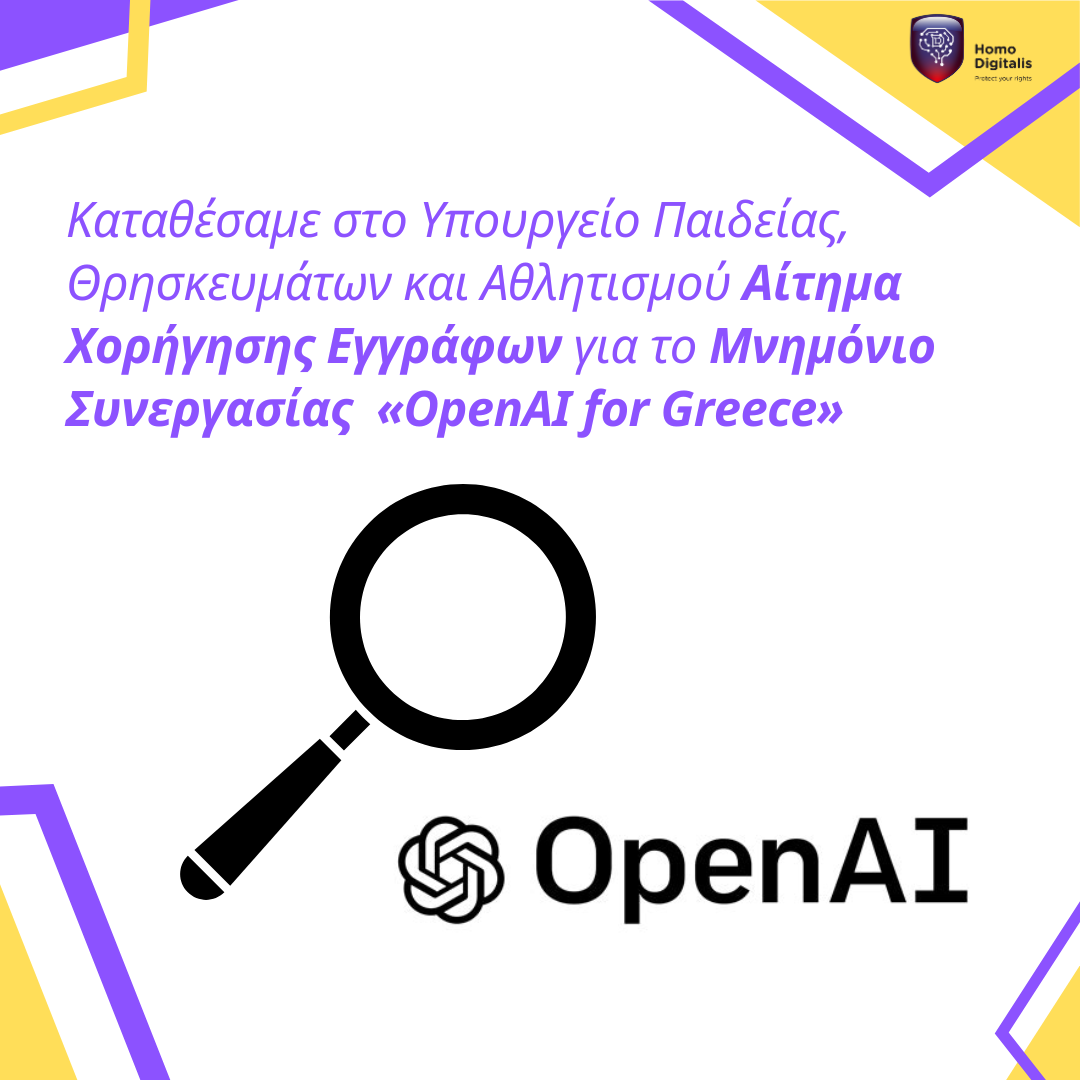We submitted a FOIA before the Greek Ministry of Education for its Memorandum of Cooperation with OpenAI
At Homo Digitalis, we support the innovations brought by new technologies and believe that they can significantly contribute to the improvement of our society, provided that their use complies with the applicable legal framework and aims to promote and protect our rights and freedoms. We envision a better world, where the adoption of technological solutions is the result of critical thinking as well as informed and balanced decision-making.
In this light, we were concerned by the signing, on Friday, September 5, of the “OpenAI for Greece” Memorandum of Cooperation by the Ministry of Education, Religious Affairs and Sports with OpenAI and other stakeholders, for the pilot use of the ChatGPT Edu tool by teachers and students in 20 high schools across the country.
How will teachers and students feel when asked to use tools provided by a company such as OpenAI, which has already been fined €15 million for violations of data protection legislation in Italy and is currently under investigation for possible violations in other countries, such as Austria?
And on what grounds are Artificial Intelligence systems based on proprietary software from US tech giants being prioritized over equivalent tools that could be developed with free and open-source software by research centers and institutions in Greece? Such a choice disregards the European Union’s strategy to strengthen openness, transparency, and technological sovereignty, and, in the case of widespread adoption, will inevitably lead to the dependency of our education system on proprietary software and foreign companies.
In light of the above, today we submitted (protocol number 108260/8/92025) before the Ministry of Education, Religious Affairs and Sports a request for access to documents and information, in which we set out our concerns in detail and request access both to the Memorandum of Cooperation and to other related legal deliverables that should have been drawn up regarding the obligations arising from Law 4624/2019 and Law 4961/2022.
You can see our request here (EL).
